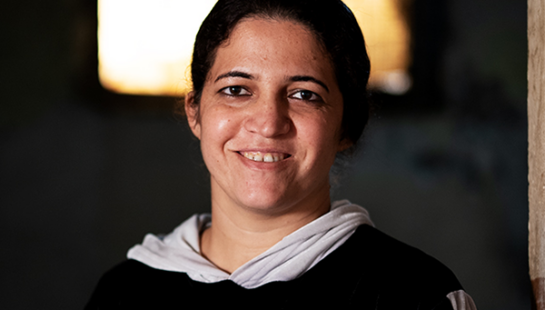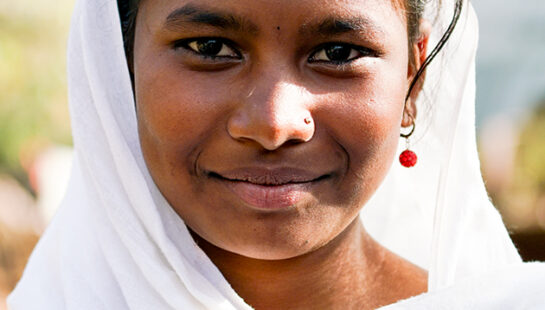Poverty Was A Way Of Life
Before Pomilla met the ‘Baptists’, as she calls them, her rural life in Bangladesh was not unlike the 65 percent of her country’s population who live outside of the cities: full of challenges to find food, stay healthy and get clean water. Poverty was a way of life.
Pomilla’s husband Suresh had started work at a garment factory in the capital city of Dhaka to earn a better wage for his family, joining millions of others working in an industry responsible for 80 percent of Bangladesh’s exports. But finding that job meant having to leave Pomilla and their three daughters in the village for long periods of time. Pomilla struggled to meet basic daily needs, needs many Australians take for granted.
Suresh eventually took the oldest two with him to the city, in part to avoid the pressure of childhood marriages but also because it was easier to find accommodations that way. Suresh organised sewing lessons with a local tailor for his daughters to learn a trade, while Pomilla stayed with their youngest, Sudhira, back in the village.
On the phone with her husband, Pomilla talked about feeling unwell and how she missed him. Daily life wasn’t easy without him nor was stretching his pay-check for fruit, rice and vegetables—if he was able to send money at all. Still, she would dream aloud of a garden, maybe behind their house on their small piece of land, a common dream for many in rural villages across Bangladesh.
Fruitful gardens signified less worry (about food) and more opportunity to care for others.
Then One Of Our Local Christian Partners Stepped In
And then Bangladesh Baptist Fellowship came—investing in a project some ten years before the 2020 global pandemic would compromise other vulnerable people in Bangladesh.
‘I want to thank Baptists because whatever I am telling now will be sent there. They will hear us. That is why we thank to them.’
They set up a child and youth club that Sudhira attended. They also created a savings and loan project for mothers like Pomilla and offered training sessions in hygiene, agriculture and fish farming, building her confidence and independence.
‘They came here and called a meeting for us. At that time, we used to sit in meetings once a week. Chat with each other. This is how we got involved in relationship with the Baptists,’ said Pomilla. ‘I feel good about them. They taught us many good things. How to keep hands and fees clean using soap, to wear sandals while going to latrines, to keep ourselves clean.’
Future-Proofed From COVID-19
When COVID hit and Suresh’s factory closed, he could not send money or visit because of lockdown. But because of those early workshops, Pomilla’s dream had literally taken root: she’d started a garden with loans from the savings group, began to grow and sell fruit, and knew how to maintain healthy hygiene.
‘Yes, many changes have come. We wear masks we got from Baptists and keep clean. We don’t wear dirty clothes; we wear clean clothes. I take care to keep clean so we don’t catch corona. I feel good because staying clean is good and I ask the children to keep themselves clean always.’
Her garden, too, has brought change. Mangoes, jackfruits, vegetables. Even a fish farming pond from a loan. Each is a step toward fulfilling another dream.
‘I want to thank Baptists because whatever I am telling now will be sent there. They will hear us. That is why we thank to them.’
Help more families like Pomilla’s flourish. Give generously to the Matching Grant Appeal before 30 June so your gift has greater impact!



 Mike Bartlett
Mike Bartlett
